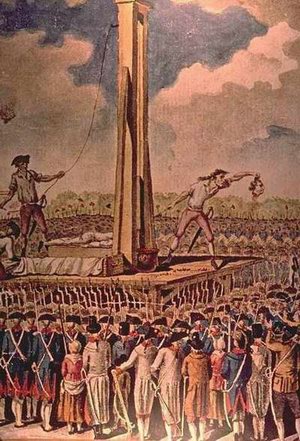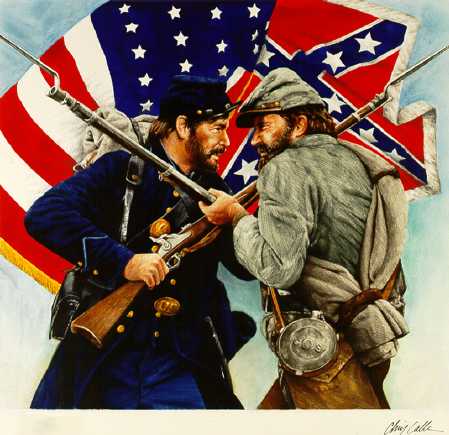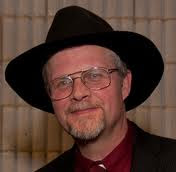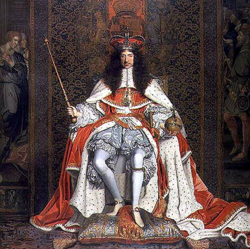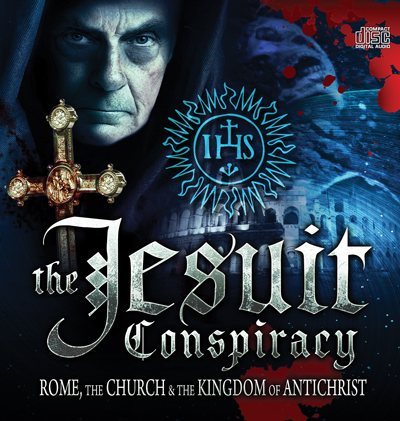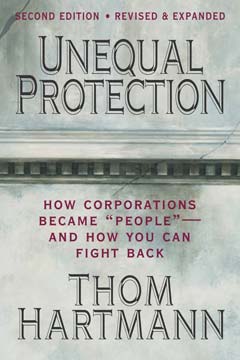http://www.blogtalkradio.com/drakeshelton/2013/05/31/the-atheist-deception-part-2
The Atheist Deception Part 2 Friday, May 31 2013
Uncategorized 5:11 pm
The Atheist Deception at Blogtalkradio Thursday, May 30 2013
Atheism 12:01 pm
Monsanto and its Hypocritical Protestors Wednesday, May 29 2013
Communism 12:49 pm
The Occupy Movement protested their Yankee Capitalist anti-thesis on May 25th.
http://occupy-monsanto.com/march-against-monsanto-may-25-2013/
I pointed out to the local Chapter that their protest was hypocrisy. Their protest argued that Monsanto is polluting our food supply and destroying ma and pa markets. Their Communist brethren invaded and destroyed a ma and pa agricultural society with the American Civil War.
You can also read Sutton’s Wall Street and the Bolshevik Revolution to see how Communism does the bidding of Wall Street.
Occupy is a bull shit movement for ignorant know nothing Communists.
Away down South in Dixie, over and out.
The Purposeless, Fatuous and Arbitrary Artforms of Communist “Culture” Wednesday, May 29 2013
Art 11:48 am
This is a new “art” construction by the Collectivists at U of L.
This looks like an over-sized collection of stained penne pasta on a string that I constructed in Kindergarten; but guess what folks, this is the lofty art-form of Communist Civilization. This is what it comes to. This is the bill of goods that the white race has bought in the last 2 centuries. Unbelievable………………
Dale Tuggy Did Not Delete My Comments He Simply Dodged Them Tuesday, May 28 2013
Theology Proper and Triadology 4:22 pm
To my criticism of his criticism of Calvinism:
Replying to Dale Tuggy on his Criticisms of Calvinism Through Theology Proper; Can He Handle It?
Dale replied:
Hi Drake,
Long time readers will note that I tend towards being too liberal in allowing the trolls to run free. Enjoy your freedom! But note that there are limits. You should not think, by the way, that mere embarrassment explains why Anderson et al don’t want to interact with you. You have, to put it nicely, some rough edges.
“To take your view of the will, is nothing short of denying Christianity full stop. What you are teaching is Aleister Crowley’s Thelema, which is why you also probably don’t keep the Sabbath. You don’t do you?”
This does not bode well for your engaging in dialogue here, Drake. Here we have a wild non sequitur (if libertarian free will then Christianity is false), a bizzare charge (Tuggy is the new Crowley!) and a weird demand – to know whether I keep the sabbath.
I’ll bite only on this last: no. I go with Paul, and with these gents on that issue.
http://trinities.org/blog/archives/4701/comment-page-1#comment-100292
I replied:
Assertions are not arguments. And you ignored everything before you. If you don’t want to argue and think through these issues, the fact that you have a blog reveals that maybe, just maybe, truth is not your goal. Personally attacking me is then your way to protect yourself from having to face the errors in your judgment, and possibly the career ending implications of facing the truth. I’ve been there. What else is left then but the pity I have for a man who will waste his life learning and never come to the knowledge of the truth. A wasted life indeed.
It appears then that looking to any American Christian Theologian or Philosopher on these issues is a waste of time. To my readers, I think it is safe to say, we have surpassed these men and need not even look back. Onward and upward.
The Lies of the University of Louisville Concerning the Antebellum South Tuesday, May 28 2013
American Civil War and Anti-White Racism and Slavery 4:15 am
My dear readers please forgive the extended attention given to the issue of the South and slavery over the past 6 months. I wanted to make sure I dealt with the Yankee criticisms of the South fairly and exhaustively. This will be the last installment on this issue for quite a while. Thank you for the few of you who have remained through this. These issues have cost me hundreds of readers but I could not be silent.
—————————————————————————————————————————————————————————
“The negroes, so far as I have yet seen them, whether in domestic service or on the farms, appear very cheerful and free from care, better fed than a large part of the labouring class of Europe; and, though meanly dressed, and often in patched garments, never scantily clothed for the climate.”
Lyell’s Travels in North America by Charles Lyell[1]
Pursuant to the syllabus HIST 211: AMERICAN HISTORY I of Daniel Krebs, Ph.D., Department of History at the University of Louisville, the assigned textbook for this course was Understanding the American Promise: A Brief History of the United States, Vol. 1: To 1877 by James L. Roark (Bedford-St. Martin’s: Boston and New York, 2011).
http://louisville.edu/history/faculty/Krebs/Hist211-01-1297-Syllabus-Fall2011.pdf
I have purchased this book and will now present a review of it.
According to Chapter 3 Section titled, When and why did the southern colonies move toward a slave labor system? the text states,
“Slaves had another important advantage over servants: They could be controlled politically. Bacon’s Rebellion had demonstrated how disruptive former servants could be when their expectations were not met. A slave labor system promised to avoid the political problems caused by the servants labor system.”[2]
The text is clearly trying to show that Virginia moved toward slavery to protect and consolidate their political power while supplanting and exploiting the black slaves in their move toward escalating the slavery institution in Virginia. History tells the exact opposite story. The men of Bacon’s Rebellion wanted to create the international trade from Virginia, not supplant it. Cassell’s History of the United States by Edmund Ollier records Bacon’s group,
“Now we can build ships,’ said they, ‘and trade, like New England, to any part of the world.”[3]
Virginia was not involved with the trade at this time and if Bacon’s group had succeeded our history would be stained with the blood of the slave trade. Virginia would continue to resist the slave trade through the next century.
The text admits as much on page 125 stating,
“About 85 percent of the slaves brought into the Southern colonies came directly from Africa, and almost all the ships that brought them (roughly 90 percent) belonged to British merchants.”
The rest were Yankees.
The Southerners were not the slave traders and kidnappers.
The text continues,
“poor white farmers enjoyed the privileges of free status. They could own property, get married, have families, and bequeath their property and their freedom to their descendants; they could move when and where they wanted; they could associate freely with other people; they could serve on juries, vote, and hold political office; and they could work, loaf, and sleep as they chose. These privileges of freedom-none of them possessed by slaves-made lesser white folk feel they had a genuine stake in the existence of slavery, even if they did not own a single slave.”[4]
This is curious. So let me get this straight: The South possessed over 200, 000 free blacks (260, 000 in 1860 according to the text, page 354), many of whom owned their own slaves, yet only the white free laborers had a stake in Plantation slavery due to their free status, though many blacks enjoyed free status, and could own property, etc. though the institution of Plantation slavery constituted 3% of the Southern population? Curious.
Regarding the issue of property: The Plantation was a commune. To complain that slaves could not own their own property is like calling a double dribbling foul on an offensive lineman in a football game. The ref is confused.
As to the issue of marriage, family and voting:
First, the text even admits on page 351,
“plantation records show that slave marriage laws were often long-lasting.”
Dabney states,
“Next, our laws did not, as many seem to represent, prohibit, or delegalize the marriage of slaves; but were simply silent about them. The meaning of this silence was, to leave the whole matter to the control of the master. It appears almost impossible for anti-slavery men to be made to apprehend the nature of the institution, as described in the words, ‘domestic slavery.’ Their minds, perverted with vain dreams of the powers and perfectibility of the State, cannot be made to apprehend that God has made other parties than the commonwealth and the civil magistrate, depositories of ruling power; [Metternich’s Council of Vienna and Treaty of Verona is behind this no doubt.-DS] and that this arrangement is right and benevolent. Now, it is the genius of slavery, to make the family the slave’s commonwealth. The family is his State. The master is his magistrate and legislator, in all save certain of the graver ‘criminal relations, in which the commonwealth deals directly and personally with him. He is a member of municipal society only through his master, who represents him. The commonwealth knows him as only a life-long minor under the master’s tutelage. The integers of which the commonwealth aggregate is made up, are not single human beings, but single families, authoritatively represented in the father and master. And this is the fundamental difference between the theory of the Bible, and that of radical democracy. [That takes care of the voting issue. DS] The silence of our laws, then, concerning the marriage of slaves, means precisely this: that the whole subject is remitted to the master, the chief magistrate of the little integral commonwealth, the family. Obviously, therefore, the question whether our laws were defective therein, is in no sense a question between the living of the slaves in marriage or in beastly license; it is only a question whether, in the distribution’ of ruling functions, those of the master were not made too large and responsible, herein. And if error be admitted in this respect, it cannot be one which makes the relation of servitude sinful; for then the same crime must be fixed on all the patriarchs, notwithstanding their care in rightly ordering and preserving, as family heads, the marital relations of their children and slaves, because, forsooth, there happened to be no’ commonwealth law above them, as patriarchs, regulative of these marriages. This is nonsense. Where the modern patriarch, the Southern master, rightly ordered and protected the marriage relations of his slaves, the silence of the commonwealth no more made their connexions concubinage, than were those of Isaac, and of Abraham’s steward, Eliezer of Damascus. What magistrate or legislature, other than Abraham, issued their marriage license? Who else enforced their marriage law or defined its rights? What civic agent solemnized the ceremonial for them? And this leads to another remark: that that ceremonial is wholly unessential to the validity of marriage. Of course, where the laws enjoin it for any class, every good citizen will observe it. But the absence of such ordained ceremonial does not make lawful marriage impossible. In this sense, consensus facit nuptias. It was thus that the holiest wedlock ever seen on earth was instituted, that of Adam and Eve; thus Abraham and Sarah, Isaac and Rebekah, were united. The fact that our laws pronounce the unions of Quakers and of Jews, legitimate marriage, although announced with different forms, and indeed almost without form, evinces this truth.
Now, then, for the facts. These facts are, that marriage in its substance was as much recognized among our servants as among any other peasantry; that the union was uniformly instituted upon a formal written license of the two masters; that it was almost always sanctioned by a religious ceremonial conducted by a minister; that the regularity of the connexion was uniformly recognized by the master’s assigning the husband and wife their own dwelling; that the moral opinion of both whites and blacks made precisely the same distinction between this connexion and the illicit ones, and between the fruits of it as legitimate, and the fruits of concubinage as illegitimate, which publick opinion establishes for white persons: and that even the criminal law recognized it as a regular connexion, by extending to the black man who slew the violator of his bed in heat of blood, the same forbearance which it extends to the outraged husband. How can it be said, in the face of these facts, that marriage did not exist among them?
But, it is asked, did not the master possess power to separate this union at his will; and was not this power often exercised? They did. The power, relatively, was not often exercised; and when the separation was not justified by the crimes of the parties, it met the steady and increasing reprobation of publick opinion. The instances of tyrannical separation were, at most, far fewer than the harsh tyranny of destitution imposes on poor whites in all other countries; and the pretended philanthropy of the Yankees has, in five years, torn asunder more families than all the slave dealers of the South did in a hundred.
But the power of separating was sometimes abused by masters; and the room for this abuse was just the defect in our laws, which nearly all Southern Christians deplored, and which they desired to repair. Justice requires the testimony, on the other hand, that the relaxed morals which prevailed among the Africans was not the result of their marital relations, as arranged among us, but the heritage of their paganism; that under our, system the evil was decreasing; and that since their emancipation and nominal subjection to the marriage law of the whites, a flood of licentiousness, vagrant concubinage, and infanticide, has broken out again among them. Clear proof this, that our abused system was better adapted to their character than the present.”[5]
Not only was marriage and family not prohibited, adultery and notions of divorce were punished by whipping.[6]
As for loafing and sleeping, I have always been struck by the record of Mississippi slavery from John A. Quitman, who was born in New York, and was raised and educated in the Yankee establishment. He then moved to Mississippi in 1820. In 1823 he wrote to Col. Brush, (And remember, this was written in 1823)
“…On public holidays they have dinners equal to an Ohio barbecue, and Christmas, for a week or ten days, is a protracted festival for the blacks…They are strongly attached to ‘old massa’ and ‘old missus,’ but their devotion to ‘young massa’ and ‘young missus’ amounts to enthusiasm…In short, these ‘niggers,’ as you call them, are the happiest people I have ever seen, and some of them, in form, features, and movement, are real sultanas.
So far from being fed on ‘salted cotton-seed,’ as we used to believe in Ohio, they are oily, sleek, bountifully fed, well clothed, well taken care of, and one hears them at all times whistling and singing cheerily at their work. They have an extraordinary facility for sleeping. A negro is a great night-walker. He will, after laboring all day in the burning sun, walk ten miles to a frolic, or to see his ‘Dinah,’ and be at home and at his work by daylight next morning. This would knock up a white man or an Indian. But a negro will sleep during the day—sleep at his work, sleep on the carriagebox, sleep standing up; and I have often seen them sitting bareheaded in the sun on a high rail-fence, sleeping as securely as though lying in bed. They never lose their equipoise, and will carry their cotton-baskets or their water-vessels, filled to the brim, poised on their heads, walking carelessly and at a rapid rate, without spilling a drop. The very weight of such burdens would crush a white man’s brains into apoplexy. Compared with the ague-smitten and suffering settlers that you and I have seen in Ohio, or the sickly and starved operators -we read of in factories and in mines, these Southern slaves are indeed to be envied. They are treated with great humanity and kindness. I have only heard of one or two exceptions. And the only drawback to their happiness is that their owners, sometimes, from extravagance or other bad management, die insolvent, and then they must be sold to the highest bidder, must leave the old homestead and the old family, and pass into the hands of strangers.”[7]
The ignorance of the Abolitionists concerning Plantation life is admitted by the text on page 372,
“Harriet Beecher Stowe…never stepped foot on a plantation”.
The text continues,
“Masters preferred black slaves to white indentured servants, not just because slaves served for life but also because colonial laws did not limit the force masters could use against slaves.”[8]
This is a total lie which I catalogued in my article against Django:
https://eternalpropositions.wordpress.com/2012/12/28/2599/
and later in the present article.
In Chapter 7 of our text we are met with the question: Why Did the Americans Declare Their Independence? This is an important question to us Southerners who are privy to the issues involved with slavery and King George as already cited:
The text gives only a sliver of light stating,
“Jefferson had included an impassioned statement blaming the king for slavery, which delegates from Georgia and South Carolina struck out. They had no intention of denouncing their labor system as an evil practice.”[9]
This is laughable. Jefferson was not criticizing the institution of slavery but the forced slave trade that not only Jefferson but Virginian statesmen had been publicly protesting and attempting to criminalize for decades only to be overruled by England as I have documented above. But does this wicked deceitful textbook mention any of it? No.
In Chapter 13, Understanding The Slave South, we are introduced with more butchering of History by the text. The text leads the reader into believing that Slavery was the only issue that made the Southern people so different than the Northern; this was the only thing that separated their philosophies of government and society. This is laughable.
The Jesuit order was re-establishment in 1814. Immediately, Counter-Reformation conferences were held by that Papal Knight of the Holy Roman Empire, Klemens von Metternich and his Congress of Vienna.
In 1818 the Duke of Richmond warned of the Roman Catholic plot,
“The Duke of Richmond.–The following language of the Duke of Richmond, while Governor of the Canadas, is reported by Mr. H. G. Gates, of Montreal, who was present when it was uttered:
“The Duke, a short time prior to his death, in speaking of the Government of the United States, said: ‘It was weak, inconsistent, and bad, and could not long exist. It will be destroyed; it ought not, and will not, be permitted to exist; for many and great are the evils that have originated from the existence of that Government. The curse of the French revolution, and subsequent wars and commotions in Europe, are to be attributed to its example ; and, so long as it exists, no prince will be safe upon his throne; and the sovereigns of Europe are aware of it, and they have been determined upon its destruction, and have come to an understanding upon this subject, and have decided on the means to accomplish it; and they will eventually succeed, by subversion rather than conquest.’ ‘All the low and surplus population of the different nations of Europe will be carried into that country; it is, and will be, a receptacle for the bad and disaffected population of Europe, when they are not wanted for soldiers, or to supply the navies; and the European governments will favor such a course. This will create a surplus and a majority of low population, who are so very easily excited; and they will bring with them their principles, and, in nine cases out of ten, adhere to their ancient and former governments, laws, manners, customs, and religion, and will transmit them to their posterity and in many cases propagate them among the natives. These men will become citizens, and, by the constitution and laws, will be invested with the right of suffrage. The different grades -of society will then be created by the elevation of a few, and by degrading many, and thus a heterogeneous population will be formed, speaking different languages, and of different religions and sentiments; and to make them act, think, and feel alike in political affairs, will be like mixing oil and water; hence discord, dissension, anarchy, and civil war, will ensue, and some popular individual will assume the Government and restore order, and the sovereigns of Europe, the emigrants, and many of the natives, will sustain him.’ ‘The Church of Rome has a design upon that country, and it will, in time, be the established religion, and will aid in the destruction of that Republic’ ‘I have conversed with many of the sovereigns and princes of Europe, and they have unanimously expressed these opinions relative to the Government of the United States, and their determination to subvert it.” [10]
In 1822, the Treaty of Verona was produced, to regain powers that European Monarchs had lost in the centuries preceding the Treaty with the fall of The Divine Right of Kings. In the US, this movement was countered by the Monroe Doctrine of 1823.[11] In 1825 the Treaty of Verona was furthered by a Jesuit session in Chieri located in Italy.[12] With this plot in place, the Jesuits began to infiltrate Protestant Universities in America through Freemasonry and the Skull and Bones organization.[13] Luigi Desanctis said,
“The Jesuits exist in all Protestant countries under the name of missionaries, with the habit of priest, and . . . they exist there under other names. . . . Take England for example, there they do not legally exist [since 1829 until re-admitted in 1902 by King Edward VII]; nevertheless, they have not given up that country, and I assure you that they are more numerous in England than in Italy, and this because all the English, Scotch and Irish priests are pupils of the Jesuits [as was the assassin of President John F. Kennedy, Francis Cardinal Spellman], . . . There are Jesuits in Parliament, amongst the Anglican clergy, amongst the Bishops, and perhaps also in still higher circles [advisors of Queen Victoria] . . .”[14]
This is when we see the rise of Jesuit Arminianism which laid the foundation for the “Second Great Awakening”. Arminianism (Pelagianism) was essential for the North’s rejection of the South’s views of white supremacy and Negro subordination via their view of nature and grace. The Pelagian system sees nature as arbitrary while the Calvinist sees nature as constituted. Thus Pelagianism gave the North a way to escape the South’s Calvinistic affirmation that the servitude of blacks reflected a law of nature pursuant to Gen.9-11.
Thus, with the massive Jesuit-inspired Luciferian infiltration of the Protestant Universities (Skull and Bones, etc.), the Jesuits construction of DECONSTRUCTION, was underway, paving the way for the reconstruction of the bHoly Roman Empire. The destruction of our social order was under way with the primary targets being our limited government and the idea that a government must have the consent of the governed in order to be de jure. Thus it was a revival of Monarchial powers.
Proceedings of the Nob Mountain Meeting, Held in Columbia County, PA. on the Last Three Days of August, 1865 by the Democratic Party (Columbia County, Pa.) states,
“MR. BURR’S SPEECH…
I will now read to you a very brief extract from Mr. Forney’s[15] paper in Philadelphia, about three years ago. You have heard of Mr. Forney in Pennsylvania, I believe. (Laughter.) You know he has been of the Cabinet at Washington, the kitchen member; he occupied all sorts of positions under the Lincoln administration, and is trying the same way to get into Mr. Johnson’s kitchen. Forney said in his paper, three years ago:
“Another principle must certainly be embodied in our re-organized form of government. The men who shape the legislation of this country when the war is passed, must remember that what we want is power and strength. The problem will be to combine the forms of a republican government with the powers of a monarchical government.”
There is an admission that they were about to “re-organize” the government. They, Forney, Lincoln & Co., were going to kindly give you the forms of a republican government, but to put you really under the hammer of a monarchical government. There were Republicans in Pennsylvania who read Forney’s paper and took that as a sweet morsel, and rolled it under their tongues, the traitors and scoundrels! and you, gentlemen of Pennsylvania, who believed right, made the great mistake that you did not take the thing by the throat, then and there, and strangle it and them on the very spot when they first dared enunciate such sentiments as these! How is it that the men who boldly proclaimed that they would strip you of all the principles of republican government, and would leave you only its forms, while they put you under the hammer of a monarchical government, have escaped hanging so long? How is it that they have been allowed to stain the soil of this country, that their very existence has been allowed here as a stench and a shame to a once free and brave people?
The North American, a very respectable organ of the Republican party in this State, at the same time that Mr. Forney was preaching about revolutionizing the Government, said:
“This war has already shown the absurdity of a Government of limited powers.”
Here is one of the most conservative and respectable organs of the party—a very different sheet from John W. Forney’s unscrupulous affair—saying, that the war has demonstrated the fact that a Government of limited powers is an absurdity. And it said further:—
“It has shown that the power of our Government ought to be, and must be, unlimited.”[16]
Now can we find a connection between Yankee Abolitionism and the Papal Knight Prince Klemens von Metternich and his Congress of Vienna? Yes we can. In Memoir and Letters of Charles Sumner, Volume 2 (1893) by Edward L. Pierce, we read of Sumner’s letter to George Hillard,
“TO GEORGE S. HILLARD.
Berlin, Dec. 25,1839.
Dear Hillard, — A happy Christmas to you, and all my friends! If this sheet is fortunate in reaching the steamship, you will receive it before my arrival; otherwise, it may be doubtful which will first see Boston. Your last is of Oct. 14, and gives me the afflicting intelligence of the death of Alvord.
“Dead ere his prime,
Young Lycidas, and hath not left his peer.”
The loss is great for all; but greater for us, his friends. I can hardly realize that my circle of friends is to be drawn closer by this departure; and yet this is the course of life: one by one we shall be summoned, till this circle entirely disappears. I shall break away from Berlin soon, — though, I confess, -with great reluctance. I fain would rest here all the winter, pursuing my studies, and mingling in this learned and gay world. I know everybody, and am engaged every day. All the distinguished professors I have seen familiarly, or received them at my own room. Raumer, and Ranke, the historians; of these two, Ranke pleases me the most: he has the most vivacity, humor, and, I should think, genius, and is placed before Raumer here. You doubtless know his “History of the Popes;” Mrs. Austin is translating it in England. Humboldt is very kind to me. He is placed at the head of the conversers of Germany. So far as I can compare conversation in different languages, his reminds me of Judge Story’s: it is rapid, continuous, unflagging, lively, various. He has spoken to me in the highest terms of Prescott’s book, — which I saw on his table, — as has Ranke also. In a note to me, he spoke of “l’excellent et spirituel Gouverneur Everett.” Savigny I know well, and have had the great pleasure of discussing with him the question of codification. I was told in Paris that he had modified his views on this subject of late years; but I was sorry to find that my informants are mistaken. He is as firm as ever in his opposition to codes. He listened very kindly to my views on the subject, but seemed unshakable in his own. He is placed, by common consent, at the head of jurisprudence in Germany, and, you may say, upon the whole Continent. He had read Judge Story’s “Conflict of Laws” with admiration, and wished to know why he was not on our committee for codifying the Criminal Law. Savigny, in personal appearance and manner, resembles Webster more than any person I have ever seen. He is taller, not quite so stout; has the same dark face, hair, and eyes; and as be has been sitting by my side, when I have first caught his voice, I have thought it was our Senator’s. Savigny and Humboldt both are in what is called the society of Berlin; that is, with la haute vole’e, the court, and the diplomatic circle, — though I have not seen either there. The other professors do not enter that circle. Most of the corps diplomatique and the Ministers I know already; and I have been well received by the Crown Prince, and the Prince William, and their princesses. The Crown Prince, who seems bon garcon, inquired about our summers: he thought they must be magnificent. I told him I thought so, till I had been in Italy. He asked me if Boston were not an old city (une ville ancienne), three hundred years old. “Two hundred,” I said; “but that is antiquity with us.” I regret much that Mr. Wheaton is not here. He is passing the winter in Paris. He is at the head of our diplomacy in Europe, and does us great honor: the Princess William spoke of him to me in the most flattering terms. This society is pleasant to enter, as I do, for a few times, and with the excitement of novelty; but I think I could not endure it a whole season. The presence of the Royal Princess is too genante; and then, all is formality and etiquette. I have seen here some very pretty women, — some of the prettiest I have ever met; two of them young princesses, the nieces of Puckler-Muskau. Bad, however, as the society is, I should prefer it before Vienna, where aristocracy has its most select home. Personally, I can bear very slight testimony on this subject, as I left Vienna the week the season commenced. I was, however, at Prince Metternich’s, where I saw the highest and proudest. Princess Metternich is thought very beautiful. I do not think so. She tosses a slight nod, if a proud prince or ambassador bends his body before her. The Austrian nobility only await the death of the Prince, her husband, to take their revanche. On my entering the salon, the Prince covered me with all those pleasant terms of French salutation: “Je suis bien enchante” de faire votre connaissance,” &c. He spoke of our country, for which he professed the greatest regard; said we were young, and Europe old: “Mais laissons nous jouir de notre vieillesse.” I disclaimed for myself and the better portion of my countrymen any vulgar propagandism. He spoke of Washington with great respect, and inquired about Sparks’s “Life and Writings,” and this new labor of Guizot. He requested me, on my return to America, to make the acquaintance of the Austrian Minister. After this reception from the Prince, I should probably have found the way easy to extending my acquaintance. But I left Vienna immediately, rode a night and a day and night over a dismal country to Prague: there passed a day; saw its bridge, its ancient towers, and the palace of the Bohemian kings…
As ever, affectionately yours, C.S.”[17]
Sumner was the leader of the antislavery forces in Massachusetts. He was a leader of the Radical Republicans in the United States Senate during the American Civil War. He devoted his work to destroy the Confederacy. And yet, The University of Louisville would lead you to believe that only Slavery separated the North from the South. Give me a break.
This view of the North and its infiltration can also be seen in what the Jesuits did to Germany.[18] And just like the North, Germany was also to revive the Holy Roman Empire with the Third Reich; the Holy Roman Empire being the First Reich. Folks, this is all about Catholicism. Rome, Rome, Rome. When you ignore Rome you ignore History. So we have the 19th century attempt to revive the Holy Roman Empire with Metternich and the 20th century attempt with Hitler, and if you don’t think they are trying it again right now you are a fool!
The text states,
“Northern whites believe din racial superiority, too, but their dedication to white supremacy lacked the intensity and urgency increasingly felt by white Southerners who lived among millions of blacks who had every reason to hate them and to strike back.”[19]
This piece of mythology was exposed in my dealing with the Slave Narratives:
Reading through liberal attempts to discredit these Narratives only reinforce the Southern argument.
The text states,
“Proslavery spokesmen played on the fears of Northerners and Southerners alike by charging that by giving blacks equal rights would lead to the sexual mixing of the races, or miscegenation.”[20]
Which it has, and I must say that my Atheist and Communist Father, revealed the hypocrisy of the Abolitionist position when he showed his outrage at the fact that my younger sister began to date black men in college. He was humiliated and infuriated as he should have been, but seeing he is a Communist he got exactly what he deserved.
The text states,
“John C. Calhoun, an influential southern politician, declared that in the states where slavery had been abolished, ‘the condition of the African, instead of Being improved, has become worse,’ while in the slave states, the Africans ‘have improved greatly in every respect.”[21]
The shocking thing is, the text never attempts to refute Calhoun!
On page 344, the text points out that the South produced few cities and did not produce a public school. This is a great admission. This shows that the South rejected Babylonian views of society. Cities are Towers of Babel ripe for judgment and class warfare. Cities are dominated by industry and industry requires that the common man work for a handful of wealthy men instead of for themselves. The South protected themselves from this.[22]
The text complains that the Southern idea of paternalism, did not
“require that planters put aside their whips.”[23]
First, the Mosaic law did not require that planters put aside their whips. Do police guards put down their weapons when they are in the Penitentiary? No. Slavery was designed to civilize a race of people under a curse for their racially prone evils pursuant to Gen. 9-11. The text acts like this doesn’t exist, as do many American pseudo-Christians, but the crime statistics of the United States Department of Justice tell the truth of the Bible’s tale.[24] Secondly, the United States’ Police State has committed many more crimes against humanity than all accusations against the South as has the Yankee’s Military Industrial Complex. The Federal Government does not have a moral leg to stand on.
The text continues,
“The master’s absolute dominion sometimes led to miscegenation. As long as slavery gave white men extraordinary power, slave women were forced to submit to the sexual appetite of the men who owned them.”[25]
The rape of a woman was condemned in the Code of Virginia 1849, Chapter 191, Section 15. R.L. Dabney says,
“…while many indictments are found against black men for rape of white women, none exist, in the history of jurisprudence, against white men for rape of black women. And this, not because there would have been any difficulty in making the indictment lie: but because, as the most experienced lawyers testify, the crime is unheard of on the part of white men amongst us.”[26]
If one wishes to investigate the men who perpetrated the most rape in the South, it was the Yankee invading Army. One such mass rape was under the 18th Ohio, Union army brigadier general, Ivan Turchaninov in Athens Alabama, April, 1862.
I have cataloged many more instances here:
Thirdly, the fact that white plantation owners had black mistresses who bore mulatto babies does not mean that a rape occurred. Men with great wealth and power rarely need to rape a woman for sex. Long-term monetary compensation usually wins over a beautiful woman of loose morals.
The text mentions on page 348,
“No feature of plantation life generated more anguish among mistresses than miscegenation.”
O really? That is fascinating because Yankee States like Ohio contained more Mulattos than blacks in the 1850 Census. The text continues,
“Mary Boykin Chestnut of Camden, South Carolina, confided in her diary, ‘Ours is a monstrous system, a wrong and iniquity. Like the patriarchs of old, our men live all in one house with their wives and their concubines; and the mulattos one sees in every family partly resemble the white children.”[27]
First, in South Carolina, only 1 in 30 black slaves was mulatto according to the 1850 Census. Second, her assertion that there was a Mulatto in every family also does not match the data in the 1850 Census. Third, as has already been documented, the Plantation represented 3% of the Southern Population. Even if her accusation was correct, her assertion that it was a SYSTEM is refuted by the fact that it made up only 3% of the South’s population.
The text complains again,
“The backbreaking labor and the monotonous routines caused one ex-slave to observe that the ‘history of one day is the history of every day.”[28]
We have already seen this testimony is not generally true from the testimony of Quitman and Lyell. I added many more statements from the mouth of slaves themselves here:
But to add a bit more:
In slavery’s modes and circumstances in the South, we see according to Robert Fogel’s Time on the Cross, “Data in the 1850 census suggest that the economic condition of the average free northern Negro may have been worse than that of the average free negro in the South.”[29] And again, “The material (not psychological) conditions of the lives of slaves compared favorably with those of free industrial workers.”[30] And again, “U.S. Slaves had much longer life expectations than free urban industrial workers in both the United States and Europe.”[31]
I already addressed the issue of slave rebellions here:
However, the text continues,
“Despite the rarity of slave revolts, whites believed that they were surrounded by conspiracies to rebel.”[32]
This is an error. They were not afraid of slaves rebelling against their alleged cruel treatment. They were concerned about the invasion of Jesuit Abolitionist propaganda. See Code of Virginia 1849, Chapter 198, Sec. 28-33.[33]
The text complains again,
“Like slaves, they were liable to whipping. Free blacks were forbidden to strike whites, even to defend themselves.”[34]
They were forbidden to defend themselves against the whipping, not absolutely! In the Code of Virginia 1849, Chapter 191, Section 9 and Chapter 208, Section 30, criminalizes acts of violence committed by either a white man or a black man against a person. Pursuant to Chapple’s Case, 1 Va. Cases, 184 as cited in, Citations to the Code of Virginia by Abram C. Eby, page 965, Section 3671,
“decided by the General Court, it was held: This section applies to the stabbing of a slave as well as to a free person.”[35]
Moreover, pursuant to Commonwealth v. Carver. June T. 1827. 5 Rand’s Rep. 660, as recorded in A Practical Treatise on the Law of Slavery by Jacob D. Wheeler[36], this law was judged to be applicable to the victim: a black slave.
This concludes my exposure of abolition propaganda. I will not doubt be posting this in audio on my radio station sometime soon. I hope to see you there.
[1] Pg. 169
[2] Pg. 77
[3] Pg. 347:
[4] Pg. 78
[5] Defence, 228-232
[6] Fogel, Time on the Cross, 128
[7] Life and Correspondence of John A. Quitman by John Francis Hamtramck Claiborne, Volume 1, page 83-84
[8] Pg. 126
[9] Pg. 174
[10] Footnote page 12, of Speech of Mr. L.C. Levin, of Penn., on the Proposed Mission to Rome Delivered in the House of Representatives of the United States, March 2, 1848 [http://www.familytales.org/dbDisplay.php?id=ltr_jed7470&person=jed]
[11] See Samuel Morse, Foreign Conspiracy Against the Liberties of the United States; Thanks Eric Jon Phelps (EJP)
[12] Abate Leone, The Jesuit Conspiracy
[13] James D. Shaw & Tom C. McKenney , The Deadly Deception (Lafayette, Louisiana: Huntington House, Inc., 1988) p. 104. ; Alexandra Robbins, Secrets of the Tomb: Skull and Bones, the Ivy League and the Hidden Paths of Power, (Boston: Little, Brown and Company, 2002) p. 119-121; Thanks EJP
[14] Maria Betts, Luigi Desanctis, Popery, Puseyism, and Jesuitism, (London: D. Catt, 1905; translated from the original Italian edition published as Roma Papale in 1865) p. 135.” Taken from EJP’s VA, 2001, pg. 118
[16] http://books.google.com/books?ei=lZMsUeyJJYag2QW-k4CQBA&dq=Another+principle+must+certainly+be+embodied+in+our+re-organized+form+of+government.+The+men+who+shape+the+legislation+of+this+country,+when+the+war+is+past,+must+remember+what+we+want+is+power+and+strength.+The+problem+will+be+to+combine+the+forms+of+a+republican+government+with+the+powers+of+a+monarchical+government&jtp=122&id=MV8JAQAAMAAJ&ots=WVzQ5t7_6x#v=onepage&q&f=false, page 122
[17]http://books.google.com/books?pg=PA129&lpg=PA129&dq=Charles+Sumner,+Prince+Metternich&sig=cPnD9gVrZaoDJX0Dr5sM7EJgkcE&ei=3pYtUa_JEKrV2QWpn4HAAQ&id=XN8XAQAAIAAJ&ots=M-ds84I0Z7#v=onepage&q&f=false, pages 127-130
[18] https://eternalpropositions.wordpress.com/2012/07/17/secularism-the-handmaid-of-the-jesuits-part-2-german-rationalism-liberal-christianity-and-the-jesuits/
[19] Pg. 341
[20] Pg. 342
[21] Pg. 342
[22] https://eternalpropositions.wordpress.com/2013/04/11/dabney-on-the-death-of-agriculturalism-and-the-rise-of-the-yankee-industrialist-sin-cities/
[23] Pg. 346
[24] http://bjs.ojp.usdoj.gov/content/pub/pdf/htus8008.pdf Pages 11-15; http://www.bjs.gov/content/pub/pdf/hc0309.pdf Quotation from page 7,
“From 2003 to 2009, the greatest percentage of hate crime victimizations were against white, non-Hispanic individuals”
See also Black mobs rioting all over the country http://urban1on1.com/2013/02/over-30…ty-mall-video/; http://whitegirlbleedalot.com/black-…ry-at-wnd-com/
See also this expansive catalog: http://blackracismandracehatred.blogspot.com/
[25] Pg. 347
[26] Defence, 233)
[27] Pg. 348
[28] Pg. 350
[29] Pg. 244
[30] Pg. 5
[31] Pg. 126
[32] Pg. 353
[33]http://books.google.com/books?id=p1BRAAAAYAAJ&printsec=frontcover&source=gbs_ge_summary_r&cad=0#v=onepage&q&f=false
[34] Pg. 355
[35]http://books.google.com/books?id=AbpNAAAAYAAJ&pg=PA965&lpg=PA965&dq=Chapple’s+case,+I.+Virginia+cases+184&source=bl&ots=WF1-mKWPSz&sig=jiPuDwX7J9lcut3fpW_k3Dz4Nno&hl=en&sa=X&ei=aC6jUe3ULuX8yQGi3oGICA&ved=0CC4Q6AEwAA#v=onepage&q&f=false
[36] Pg. 254
The Triune God Heresy Part 2; May 27, 2013, at 12pm EST Monday, May 27 2013
Theology Proper and Triadology 5:40 am
Replying to Dale Tuggy on his Criticisms of Calvinism Through Theology Proper; Can He Handle It? Monday, May 27 2013
Contra-Eastern Orthodoxy and Free Will and Hyper-Calvinism and Theology Proper and Triadology and Uncategorized 4:17 am
http://trinities.org/blog/archives/4701
I have yet to see a Professional Philosopher or Theologian allow my comments on these issues to go public on his blog. They usually delete them and go straight into panic mode. Can Dale Handle the Heat?
The following is my comment just in case it gets deleted which as we all know here is the rule not the exception.
Dale,
If you do not understand the question, you are not prepared as of yet to have a position on this issue. This all comes down to Anthropology and Theology Proper. Pelagius stated that human nature was arbitrary, and only became constituted through the gnomie-the hypostatic use of the faculty of will. Thus, evil and righteous were not to be predicated of a subject until said subject had developed a moral habit of their own through the gnomie. Thus, the idea of an ontological tendency necessary to a genus of beings was ruled out in Pelagius and this is later developed in Eastern Orthodox Theology with Maximus the Confessor who really perfected the idea of the gnomie. This is LFW to the Eastern Pelagian system.
To take this view of the will is to deny tons of traditional theology. For instance the doctrines of penal substitution and the doctrine of hell require God to have a tendency, an ontological necessity (Thus no LFW), to punish evil. I chased this white rabbit to the bottom of its hole a couple years ago. It also has implications in Theology Proper. In order to maintain the LFW, one must posit an absolute monad as your ultimate principle. Thus God is not a person (The Father) but an essence, huperousia. That is, in order to answer this question: “why does God will what he wills?”, with the answer, “I don’t know” and thus positing an absolute freedom to God’s activity (LFW), one must posit that God is an essence huperousia and not a person. When one posits the ultimate principle as a person, an intelligent being, like the Father, one answers the question “why does God will what he wills?”, with the answer “Because it agrees with his nature” (Thus staying within ousia-the categories of human language and not bailing out into huperuosia); thus marginalizing God’s activity and denying absolute LFW.
To take your view of the will, is nothing short of denying Christianity full stop. What you are teaching is Aleister Crowley’s Thelema, which is why you also probably don’t keep the Sabbath. You don’t do you?
Glen Beck: “We Are All Catholics Now” Sunday, May 26 2013
Counter-Reformation and Jesuits 7:02 am
9:20
A Contradiction in Triunist Filioque Thinking Saturday, May 25 2013
Theology Proper and Triadology 9:52 am
Triunists generally do not like the doctrine of Eternal Generation. They think that passages that refer to Christ being begotten pertain to the economia. They say the same with reference to John 14:28 that the Father’s great-ER-ness pertains to the economia and not to eternity. Yet when they are faced with the distinction between the Spirit’s Procession from the Father in eternity and the sending of the Spirit by the Son in the economia, they immediately do a 180. They say that the economia reflects the ontological in eternity. Well if that was true then the Father being greater than the Son pertains to ontology and the begotten-ness of the Son pertains to ontology! Triunism just cannot win no matter how it stacks the deck.




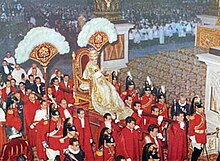



-1-.jpg)

